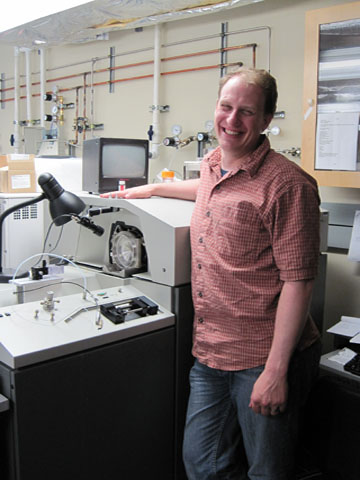
Mass spectrometry is a technology that can separate and measure the quantities of particles based on their mass and their charge. The general concept of a mass spectrometer is that ionized particles are sent through an electrically charge fields and the particles are separated based on their mass to charge ratio. The heavier a particle, the less it will be effected by the electric pull and the higher its charge, the more it will be effected. The mass spectrometer uses this simple concept to measure incredibly small differences in the mass of tiny particles. This information is used to identify the particle and then particles of the same type can be counted. While it is a technology that was actually invented in the late 1800’s, the technology is always changing and its measurements are becoming more and more precise.
This technology has become incredibly important to proteomics, the study of proteins. Proteins are broken down into smaller peptide chains so that they can be more easily sent through a mass analyzer. These charged peptides are then passed through an electrically charged field and the peptides are separated based on the mass and charge. Once these peptides are identified based on their mass and charge readings, they can be built back up into the original protein. Once this is done, the quantity of each protein in that sample will theoretically be known.
The mass spectrometer is an extremely important piece of technology to the study of systems biology and proteomics in particular.
 |



